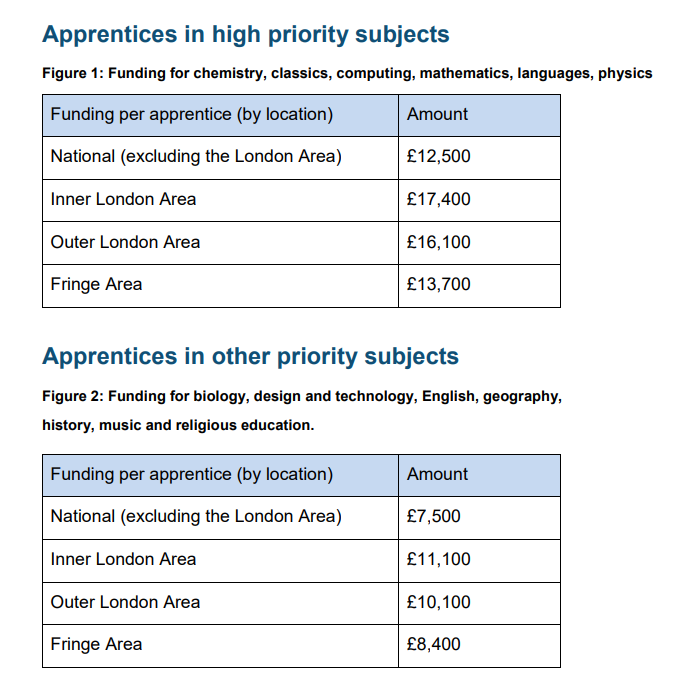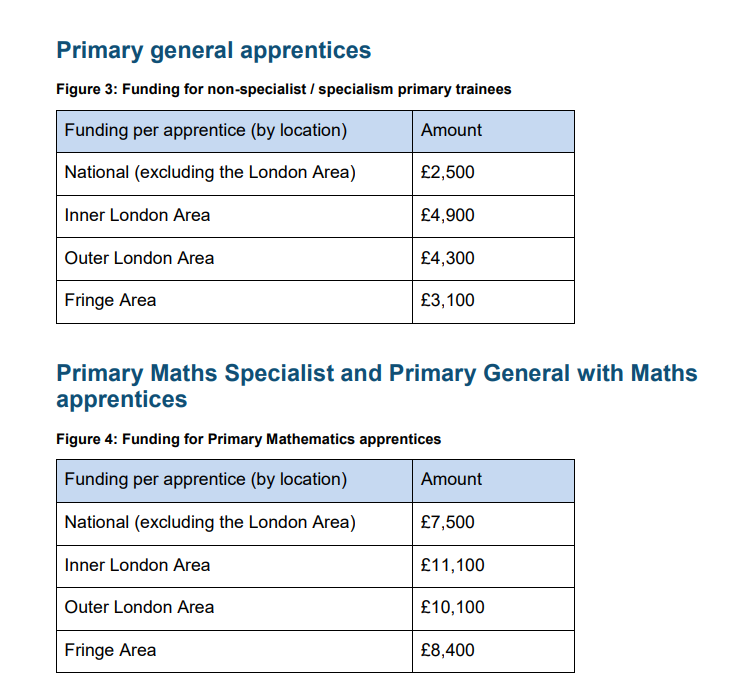Schools will receive grants to help them pay for new teaching apprenticeships, but only to cover teachers in certain “priority” subjects, the Department for Education has said. The money will also only be on offer to those schools in School Direct partnerships.
In a guide published today, the DfE has outlined the subject areas that will qualify for grants to pay for the training route, and the levels of funding available to schools to pay for apprentices’ “off-the-job” training.
School Direct schools wanting to hire apprentices in non-priority subjects, or schools that do not qualify for the grants at all, can still take on teacher apprentices, but must fund their training from money paid into the apprenticeship levy.
At secondary level, only trainees in “high-priority subjects” including chemistry, classics, computing, mathematics, languages and physics and those in “other priority” subjects, like biology, design and technology, English, geography, history, music and religious education will be eligible for grants.
Funding is also available to train non-specialist primary teachers. However, the amount of money available is minimal; specialist maths primary trainees will attract a larger amount.
The new postgraduate apprenticeship for teachers will launch next September, with existing graduates able to sign up to train on the job over four terms.
The amount schools will get to pay for training will vary based on the subject the teacher is being hired to teach, and where they are based in the country.
Teachers in “high-priority” subjects will attract the highest amount of funding, ranging from £12,500 per apprentice outside London to £17,400 in the innermost parts of the capital.
Those in other priority subjects will attract funding of between £7,500 and £11,100, depending on where they are working.
The rates for primary teachers range from £2,500 to £4,900 for non-specialists, and from £7,500 and £11,100 for specialist primary maths apprentices.
The higher primary maths funding rate is only available for apprentices with at least a B in mathematics A-level or its equivalent, and who are registered on primary maths specialist or specialism courses, which can only be delivered by certain training providers.
For apprentices not covered by the grants, schools can use money from the apprenticeship levy, which many schools, most academy trusts and all councils have had to pay into since this spring.










Your thoughts